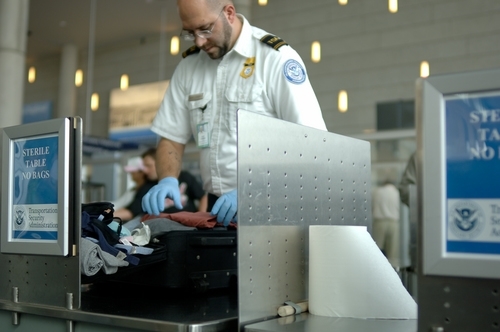
A survey conducted by a Bentley University marketing-research professor and two colleagues from WPI found that travelers, not surprisingly, would love to avoid aspects of airport screening. Airfare isn't the only cost travelers face at the airport. The typical passenger faces a plethora of social costs before they can enter a plane, and a lot of these discomforts begin at the Transportation Security Administration checkpoint. Passengers sacrifice privacy by having their bags checked and compromise dignity during physical pat downs. Are fliers willing to pay to avoid these actions, though?
Paying to Skip Airport Security
Without a price tag, it's hard to measure the monetary cost of these security protocols, but Professor Paul D. Berger, director of Bentley University's graduate program in marketing analytics (MSMA), and his colleagues found just how much these actions "cost" the average flier in terms of dollars. In a paper published in The International Journal of Business Disciplines, Berger and his colleagues studied the marketing principle of "willingness to pay."
The researchers collected questionnaires from respondents, gauging the amount individuals were willing to pay to avoid certain security systems — metal detectors, full body scanners and pat-downs. The research showed that the average flier was willing to pay:
- $3.31 to skip the metal detector
- $4.65 to avoid the full body scan
- $5.26 to forego an enhanced pat down
"The TSA knows this is a problem," Berger said. "We surveyed 475 respondents and our data puts a price point on traveler discomfort, perhaps offering an alternative to the TSA's flawed Pre-Check Program." The fact that the study revealed that the perceived social costs differed for different protocols by gender, age, and race may allow a more effective marketing and operational strategy to be undertaken by the TSA.
Airport Screening Social Costs
The discomfort the fliers were referring to included loss of dignity during physical pat-downs and scanning methods. They also mentioned the anxiety of assumed health effects — proven or otherwise — after passing through some detectors that use radiation. To the contempt of many, the additional effort of taking off shoes and waiting in long lines increases the cost of air travel from a social perspective. Using the Bentley analysis, researchers may better understand what passengers are willing to pay to avoid particular security procedures while indulging in others so safety isn't sacrificed.
A TSA Pre-Check Overhaul
The topic has been studied by other entities as well. In fact, The Wall Street Journal recently reported that the TSA could use private-sector marketing to attract some 10 million people willing to pay to forego the more uncomfortable elements of the security lane in airports. This effort would capitalize on a segment of people unwilling to make an appointment to have fingerprints and IDs scanned, James Robell, president of Eid Passport, a company trying to redevelop the TSA's evaluation of private-sector security screening and a likely bidder for TSA's business, told the news source.
The attempt to rework the security process to benefit the consumer would require tremendous care, however.
Quelling Fears and Social Costs
Few forget the harsh impacts terror attacks had on the airline industry in the early 2000s. The Boston Globe noted that air travel following 9/11 had been reduced so much that researchers believed the flu season — a phenomena often linked to air travel — had been delayed by about two weeks. CNN noted that in the years following 2001, travelers attempted to avoid flying on the date at all costs.
Security fears greatly affect airline travel, which means a system that allows reduced security for paying customers would have to be installed carefully. Many complain about the overabundance of airline security, which has often been the subject of disdain for business travelers and vacationers alike, but those same measures make fliers feel safe. The trouble begins when that security becomes too costly — socially or otherwise.

